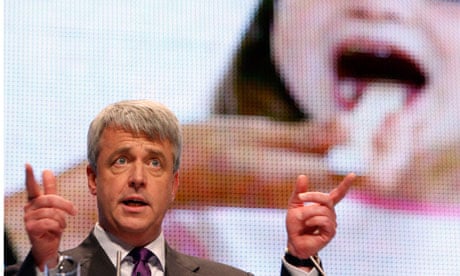Are the government's flagship health reforms dead in the water? This is not an absurd question, even though it is less than three months since Andrew Lansley's white paper promised the most far-reaching changes to the NHS in England since the service's creation and parliament has not yet had the chance to express any view. Recent events can have done little to lift the mood of the health secretary, who has staked his reputation on proposals that have so far found few backers.
Stephen Dorrell, the last Tory health secretary, who is now chair of the Commons health select committee, is publicly sceptical about the white paper's key plan: the switch to GPs commissioning £80bn of health services for their patients. Why, he inquires, should that be effective when that same policy hasn't worked for the last 20 years when it's been tried, for example through GP fundholding? Civitas, a rightwing thinktank, fears the changes could set the NHS back three years.
The British Medical Association (BMA) is even plainer in its response to the white paper. It warned last week that Lansley's plans were rushed, ill-conceived and potentially disastrous: "There are aspects of the white paper's proposals which have the potential to undermine the stability and long-term future of the NHS … We would question the value for money of such changes and whether a less disruptive, more cost-effective process could have been proposed to achieve similar aims of reducing bureaucracy and empowering clinicians … We urge the government and NHS organisations [not to] adopt a slash-and-burn approach to healthcare with arbitrary cuts and poorly considered policies." Furthermore, it says GP commissioning could damage the relationship between family doctors and patients, while forcing all hospitals to become foundation trusts. That could threaten safe patient care in the short term and "lead to a two-tier health service" in the long run, as chasing private patient income would be prioritised. In essence, this was the doctors' union telling Lansley: "Go back to the drawing board."
Today is the deadline for all response submissions to the health secretary's white paper. Many have yet to be published, and they will be a mixed bag. Steve Field, chair of the Royal College of GPs, has been alone among senior doctors in endorsing Lansley's future vision. But there seems broad agreement that giving GPs more control, focusing more on the outcome of treatment, and formalising the key role of patients ("no decision about me without me") are good ideas. And many agree that cutting NHS management is overdue, although not necessarily by abolishing England's 152 primary care trusts.
But there is also concern at the speed with which the paper proposes to implement changes, and their revolutionary nature. The Royal College of Nursing warns that the scale and speed of reforms pose a significant risk to the future of the NHS. A survey of its members found that just one in five agreed that the proposals will result in better care for patients. The health union Unison is seeking a judicial review of the way Lansley put together the paper – it was published without most of the NHS's key players, or the public, being consulted. The high court will hear both sides' arguments over two days.
Hamish Meldrum, the BMA's chair, last week inferred that he saw the paper more as an early draft of ideas to stimulate debate, and not a preordained direction of travel to be followed regardless of key stakeholders' views. He sympathised with Unison's move. Lansley now faces a real test. He didn't seek the medical establishment's views before publishing the paper. Will he do so now, and rethink the limits of his ambition? What's good for patients surely also applies to the GPs needed to make the new system work: no decision about them without them?
Denis Campbell is the Guardian's health correspondent.

